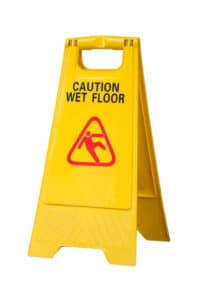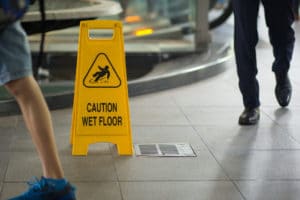Philips sleep and respiratory care devices have been recalled, as they have been linked to serious lung injury or cancer in consumers. Philips’ bilevel positive airway pressure (BiPAP), continuous positive airway pressure (CPAP), and mechanical ventilator devices help provide breathing assistance to patients dealing with sleep apnea and other respiratory problems. However, the U.S. Food and Drug Administration announced that Philips issued a voluntary recall for models of the ventilator devices in April 2021, and an updated recall on June 14, 2021. This recall affects millions of products that people with respiratory issues use on a daily basis.
Philips Sound Abatement Foam
The Philips CPAP and BiPAP ventilator devices have been recalled after it was discovered that the sound abatement foam, located inside the ventilator devices, have been linked to serious respiratory illnesses, lung injury, and even cancer. The foam is a polyester-based polyurethane foam, and is used in the products that may disintegrate, resulting in the user inhaling the toxic chemicals, or contaminants. Philips determined that foam may degrade into particles that enter the air path of the devices, which then gets inhaled by the user. The sound abatement foam can cause skin, eye, and respiratory tract irritation, leading to asthma, headaches, adverse effects of many organs, or carcinogenic effects. Users reported to Philips that they were suffering headaches, cough and chest pressure, upper airway irritation, and sinus infections following the use of the device.
Philips Awareness
Studies state that Philips was well aware of the risks that stem from the ventilator devices before the recall, although they failed to alert users of the product. In their company’s quarterly report in 2021, they mentioned that users had reported they were experiencing adverse health effects after using the products, leading to Philips discovering the issue with the sound abatement foam. This recall involves million ventilator devices, most of which are a first-generation device and are within the 5-year service life. Philips may be facing multiple lawsuits filed by users of the device who experienced injury or cancer after using a Philips sleep apnea ventilator.
Risks Associated With the Devices
There are many health risks that are associated with the use of these ventilator devices, ranging from skin irritation to various types of cancer. There are many related injuries that people have already been diagnosed with, such as airway inflammation, breathing difficulty, lung damage, asthma, pneumonia, lung cancer, kidney cancer, liver cancer, colon cancer, heart attack, respiratory failure, stroke, liver disease, and kidney disease. Although the company has received many reports of serious injury or cancer, no deaths have occurred. The FDA recommends that users of BiPAP and CPAP devices talk to their health care providers for alternative treatments.
Philips has advised users to stop using the devices and consult with their physician to determine the benefits and risks of continuing therapy. However, they warned users to not discontinue their prescribed therapy without having a conversation with their physician to determine the appropriate steps moving forward. Philips stated that they are researching for a permanent corrective action to address and solve the problem.
This lawsuit covers anyone in the United States who purchased a Philips ventilator device that has been recalled for personal or business use between the applicable statute of limitations period through June 14, 2021. If the lawsuit keeps moving forward, the affected users will receive a notice of the settlement, making them entitled to claim compensation. If you or a loved one has been diagnosed with serious lung damage or cancer due to a Philips CPAP, BiPAP, or mechanical ventilator device, it is important you file a claim. At Richard Harris Personal Injury Law Firm, our goal is to handle these cases and ensure compensation for users of the Philips devices. Our trusted attorneys have had years of experience dealing with faulty devices, and know how to handle your specific case in court.





























